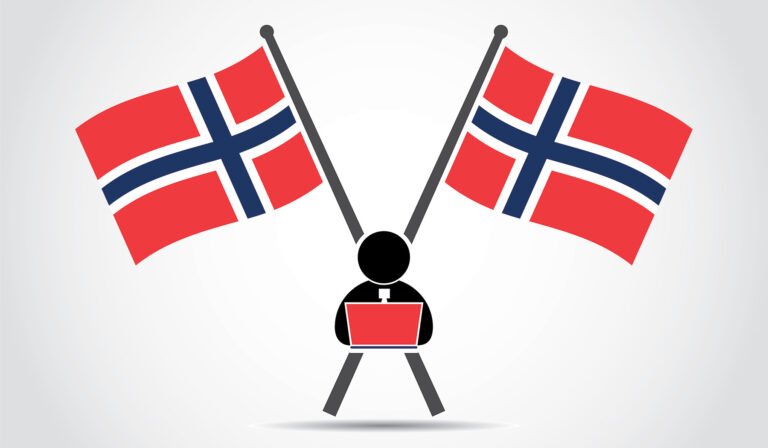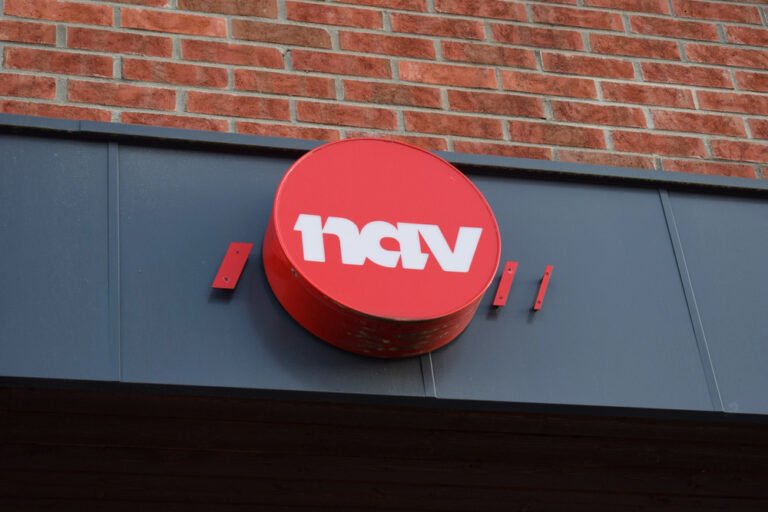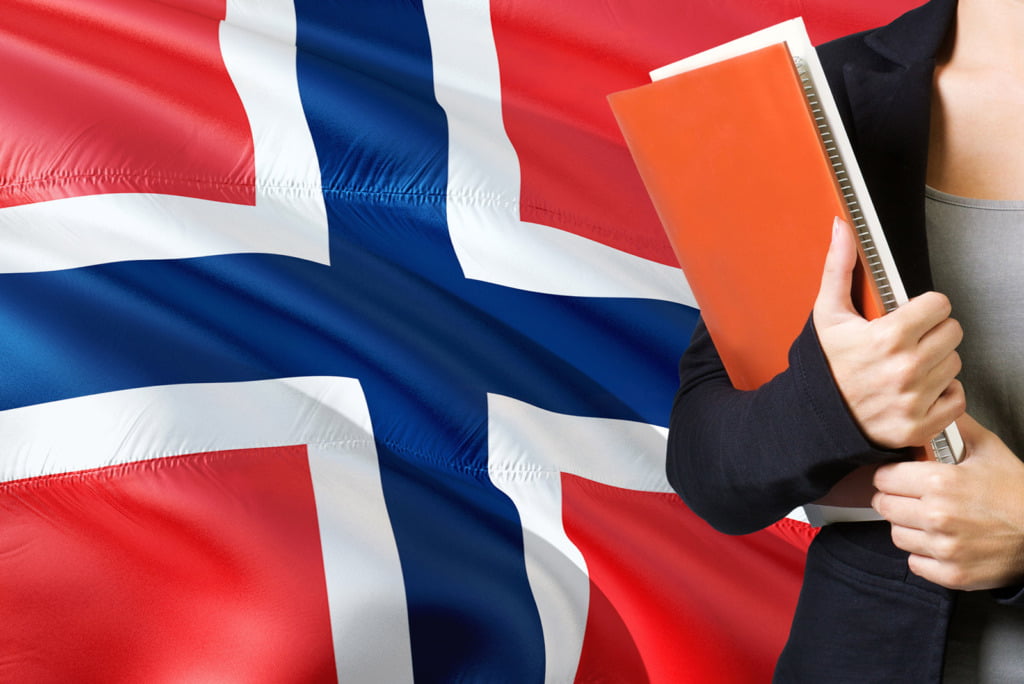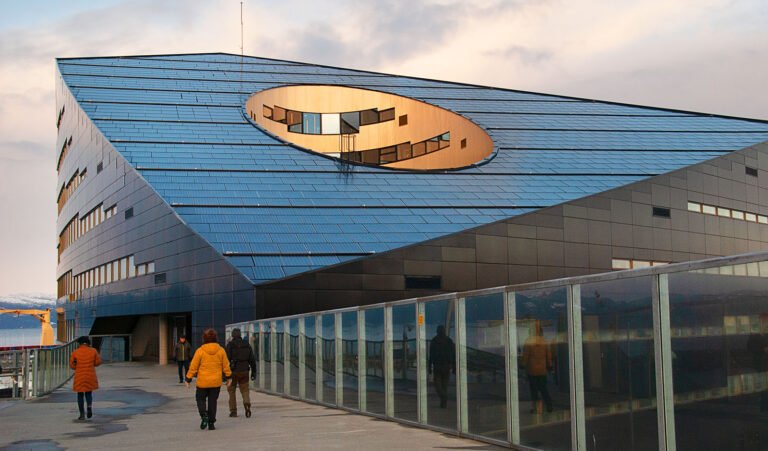Struggling to find a job in Norway? You're not alone. Here are some common reasons skilled foreigners can't find work—and what you can do about it.
Statistics Norway defines ‘innvandrer’ (literally translated as ‘someone who has wandered/traveled in’) as ‘someone who was born outside of Norway by non-Norwegian parents’.

This is a large category, glossing over differences, life stories and self-ascribed identities. Statements like ‘innvandrere strever på arbeidsmarkedet’ (immigrants struggle in the labor market) are common, but imprecise. To work out what, we also need to know who.
This text refers to highly skilled immigrants in Norway. They are ‘innvandrere’ with university degrees, specialized skills and often sought-after professional competence in a trans-national labor market.
‘Highly skilled immigrant’ does not exclude other forms of identification; many highly skilled immigrants also identify as international students, self-initiated expats, sponsored expats, expat partners, internationals, refugees, lovepats, third culture kids….while others resist, or are uninterested in, labeling.
Get the Book: How to Find a Job in Norway
In this text, I address immigrants who are already here, not challenges met by those trying to secure a visa.
Do highly skilled immigrants find work in Norway?
Yes and no, but on a general note, securing work at their competence level and in their field is more challenging for highly skilled immigrants than for highly skilled Norwegians.

I’m also told by many that their experience of securing relevant work in Norway is more challenging than in other countries they have previously lived in.
Not hiring immigrants can seem unwise. There is a shortage of workers in many industries, and research indicates that businesses who have a diverse workforce hold the potential to perform better than those who do not. What is missing in the matching process?
Addressing perceived challenges for skilled immigrants in the Norwegian labour market is two-fold: we need to examine individual (job seeker) as well as organizational (job holder) factors.
Challenges for highly skilled immigrants in the labor market – individual factors
Focusing on perceived challenges for the individual job seeker, there are five main categories:
Norwegian language skills
I won’t say it’s impossible to find relevant work without Norwegian skills, but it is definitely seen as a relevant factor.
Formally recognized B1/B2 proficiency is a requirement for some job groups, while ‘fluent Norwegian’ is often listed as a requirement for jobs where there are no formal requirements.
Lack of language skills can be seen as a hindrance to efficient onboarding as well as to ‘fitting in’ with co-workers in companies where the working and socializing language is Norwegian.

Acquiring necessary language skills can pose a considerable challenge for highly skilled immigrants. Often excluded from state-sponsored language training, they are left to look for affordable private language classes and juggle learning Norwegian with work/looking for work, integration and supporting a family.
Cultural competence
A study done by Trine Fossland with Tromsø University as well as a report from Norwegian research center FaFo indicate that lack of cultural competence is seen as another hurdle for skilled immigrants to overcome in entering the job market at an appropriate level.
Education, experience, and references are not enough; you also need to understand work-place cultural codes, expectations, and how to ‘translate’ and transfer skill sets to a Norwegian context.
Lack of cultural competence is also mentioned in Ida Christin Vant Johansens study of intentional diversity in recruiting and management in a Norwegian private sector company.
The company is less likely to hire for diversity in highly skilled management positions than in low skills positions, she says. This is explained partly by referring to challenges based on different cultural understandings of the leadership role.
Unfamiliar credentials and foreign references
‘Far-away’ educational credentials or references are less likely to be trusted or properly evaluated by employers, thus creating a barrier to employment, shared Associate Professor Anette Risberg in a recent presentation of Swedish data.

This sentiment can be heard in career workshops aimed at the target group in Norway, too; securing Norwegian references and Norwegian work experience is advisable.
Additionally, some qualifications (teacher, doctor, nurse, psychologist, physiotherapist to name a few) need a Norwegian approval or authorization, sometimes requiring potentially time-consuming additional training for the immigrant. Trine Fossland’s data shows that this is especially challenging in the medical field.
Networking
Perhaps as an extension to lack of familiar credentials is lack of a familiar, or local, network.
Building a network is essential when looking for work in Norway, since there are several opportunities that do not go through the officially recognized channels / portals such as Finn.no and NAV.
A network, indicates Trine Fossland’s research, can also support the immigrant in his / her effort to identify and effectively communicate a ‘foreign’ background and skills as something that is relevant in Norway.
One must, however, build ‘the right network’; a professional network consisting solely of other immigrants may not be the best tactical move for securing relevant work in Norway.

Family structure
Trine Fossland raises one more perceived challenge for highly skilled immigrants seeking work in Norway, namely gender, life stage and family. She states that:
“…the risk of not getting a job was also connected to gender and family obligations and the widening time span since the migrants’ previous high skilled job—or any relevant work at all”
and continues to explain how many, especially women, struggled to join the formal work force upon arriving when the children were young, because the family had no local support system to back two parents working full time.
This is common among expat partners worldwide, and the bridge from ‘stay-at-home’ to ‘gainfully employed’ often grows longer with years passed.
What can be done?
Finding gainful employment for highly skilled migrants in Norway is potentially more long and winding than climbing Preikestolen! What can be done?
Focusing on the individual
Recent research from Sweden by Anette Risberg and Laurence Romani shows that efforts focusing on the individual and his or her potential to adapt to local employment norms are absolutely helpful.
Language classes and increased cultural competence as well as coaching in CV- and cover-letter writing can increase the highly skilled immigrants’ chance to secure relevant work.

This is confirmed in Norwegian data from Fafo, where mentor programs focusing on these skills as well as network building and personal relationships were evaluated.
Mentor programs can be an important contributing factor on the path to gainful employment for highly skilled immigrants, but they should be as tailored as possible, bridging the mentee competence gap rather than providing general training.
For example, language classes and interview-training specifically targeted to the mentee’s industry was experienced as far more relevant than general language and job-seeking classes.
Read more: The Ultimate Guide to Moving to Norway
We may, however, need to widen our focus to succeed with making use of highly skilled immigrants as a resource in the workforce. We need to work on individual factors and ensure that competence gaps are bridged, but we also need to examine organizational factors.
Focusing on the organization
Job holders, recruiters and HR representatives are the gatekeepers to work participation.
Fafo’s report on mentoring as a path to gainful employment in Norway introduces a distinction between ‘person-job fit’ (are you qualified) and ‘person-organization fit’ (do you fit the organization profile).
They continue to state that ‘person-organization fit’ can be seen as
- looking for someone who is a similar addition to the organization (cultural fit), or
- looking for someone who is a complementary addition (cultural add)
Data indicate that hiring managers often, more or less consciously, look for someone who fits the first description, creating a homogenous work environment.

This is confirmed in Risberg and Romani’s (2021) data from Sweden, which shows that recruiters had a pronounced tendency to look for someone ‘similar to me’.
Hiring for cultural fit was seen to protect organizational normalcy, ‘the way we do it here at our work-place’ from potential ‘risk’ or change/disruption.
Get the Book: How to Find a Job in Norway
Interestingly, hiring managers with international experience are more likely to hire other internationals, and in organizations where the workforce is already culturally diverse, there is a higher willingness to hire immigrants, shared Risberg in a recent talk organized by recruiting agency Alva Labs.
What is ‘normalcy’?
‘Normalcy’, organizational or otherwise, is a social construct. If we are protecting organizational normalcy, we also need to decide what that normalcy entails.
Perhaps the key to hiring a more diverse workforce lies somewhere in the combination of the individual’s willingness to adapt and the organization’s willingness to do a structural audit, redefine organizational normalcy and create workplaces that reflect and respect a diverse reality.
Are you a highly skilled immigrant in Norway? Exasperated, or unsure where to start? You can reach me in the comments field below.


Tone, the things you write in this article are profoundly upsetting. I feel that your normalizing discrimination against foreign workers (independently if they are “highly” skilled) by finding culture-based excuses. The problem with some discrimination is “why stop there?”. Why not also discriminate against gender, skin color?
It’s easy for people that can just relax after work to tell others what they should be working on after work. Things get fuzzy here: “…the individual’s willingness to adapt…” vs. “…juggle learning Norwegian with work/looking for work, integration and supporting a family.” What is “willingness” from your point of view? How can you or the discrimination companies evaluate this concept objectively? Why is the low quality of the Norwegian language courses not taken into account in the “willingness” analysis?
Hi ‘Anonymous’
thank you for reading and taking the time to share your thoughts.
I acknowledge that you are upset, and I appreciate the opportunity to engage in conversation, because this is an important conversation to have.
I’d like to point out that this is a data-based text, not my personal thoughts or something I like to ‘tell other people to do’. All materials are linked.
As someone who has been through 6 international moves, I stand by the statement that a successful move needs to be backed by a personal willingness to change and adapt to different cultural and linguistic circumstances. That said, the statement in context calls for a willingness to adapt BOTH from individuals and hiring organisations.
An international move can be a significant personal culture shock, and I would love to see information on how to cope with this, as well as good quality language and cultural competence courses, more readily available.
I would say that I am highly skilled as Fagtekniker and 2 Technician diplomas but I would never dare to say someone ever would have put me in a bad position. But learning the native language should never be done in the host country, before you even think about working/living in another state, you should be at least able to communicate with them. I speak fluently german, italian and english and would never apply in Norway, if I wouldn’t not be able to at least speak at a level of B2. For general high skilled works like IT-Technology, engineering, you need a profound understanding of the language to communicate professionally.
Norwegian language courses are not even need because, someone should understand the language before entering the country. Besides, it is quite possible to learn the language by yourself, it just a thing of “willingness”. Learned it without a teacher or any help because it is by far the easiest germanic language apart from english. Danish, Swedish is on the same level, Dutch a little harder, put compared to German, it’s not a language that could not be learned in 2 years.
Thank you for the article, is very interesting and unfortunally real. I’m one of them: woman, two children, foreing, lawyer.
I’m a B1 in norwegian, going B2. I’m working on my network, hoping in better times. I applied to a lot of skilled jobs and I tried to be strong with a lot of denials. I love Norway and I don’t want to leave my dream.
Hi Vanessa, thank you for sharing your thoughts. I’d love to hear your story; feel free to contact me if you’d like to chat. I’m on LinkedIn
https://www.linkedin.com/in/toneindrelid/
Irrespective of what the author does or does not expand/clarify/deepen on – the starkness of homogeneity stares us all – and globally – we are all getting narrowed instead of accommodating the wonder that comes with being the other, the outsider. I think articles such as this are too far and few in the norwegian language press, and therefore I applaud anyone opening a little crack to encourage disscussions along this theme.
Hi Chiara, thanks for sharing your thoughts. I quite agree; being able to see the world from a different perspective and challenge the status quo is a gift.
Is the sector of science/engineering a little bit more open to foreign people? It usually is in other countries. Physicists are not too fussy about language and institutes want diversity. Were could someone start if they wanted to move to Norway in this field? I do not live there but I would like to move to unite with family that already lives there. Is that very hard? I think many points in the article are true in other countries too. In NL for example. Although the Dutch are more open to the world and seek diversity still the cultural homogeity is a subconscious thing that everyone does. In NL as well communication is a key, you have to learn the cultural norm and adapt to communicating the way the people here are used to. Else they won’t understand your skills. You need to communicate the way your Dutch equivalent (professionally) would do, so that the hiring person can place you in the right category. It seems to me the first step could be to ask someone Norwegian to talk about how they would expect someone in your profession to look-act-communicate. Also to look at CVs that Norwegians with the same skills write, to see the way they communicate and address the hiring comitee?
Hi Christina,
thanks for sharing your thoughts. I have several friends and former students who share similar statements about the Netherlands, but I don’t have any data available to support a comparison. If you’re considering applying for work in Norway, I suggest you start with the Directorate for Immigration website, UDI https://www.udi.no/en/
New in Norway, http://www.nyinorge.no/en/ also holds official information for new arrivals. I’d advise consulting a career advisor for tips on how to proceed with looking for work. Good luck!
I think NOKUT is also worth a mention here is it can take several months to have a degree approved and very few jobs will be available until you have this in place.
I experienced a great deal of frustration in the start, applying for jobs and getting very few replies. In my experience, in addition to a language level of B2 at the absolute minimum, you need a recommendation from someone local to ‘get you through the door’ so that you can both adapt to the norwegian office and culture, and prove your worth.
Even after starting in my ideal position (I’m a traffic engineer by trade), I still felt some frustration that it the reference from someone local had meant more than the 15 years experience in my field. It became quite apparent to me that Norway lacks country-wide competence in many of the ‘fagfelt’ (fields) my job was connected to-we still struggle even now to employ people with relevant experience-, and yet without the language skills you will always be on the back foot and will need to show employers something extra.
Fast forwards 2-3 years and the tables will be completely turned, with companies actively seeking you out.
The only advice I can really give is to stick with it and put the hours in learning the language.
This article hits the nail/s on the head. It has been 2.5 years for me here, without any luck. I have been swooped up by international organisations and they’ve bent over backwards for me to work for them. Meanwhile in Norway, I never make it past the interview, some have asked for my references but have not even checked them (even diplomats refs, but non Norwegian) whilst others have said I lack experience and did not even offer an interview when in fact I had double the experience required. Not sure what it is, maybe skin, maybe cultural, maybe language. Nonetheless, it’s upsetting, demoralising and makes it a challenge to integrate.
Even as a ‘blue collar’ worker in the construction sector with over 20 years experience it’s been a hard adjustment. Networking has proved to be absolutely key. Lack in the language department has been one of the greatest obstacles. While cultural differences also play a role it’s perhaps a little less so in trades, but certainly a strong factor….. something I underestimated for pure. We’ve been here going on 5 years now and have jumped big hurdles to make it as far as we have. We have 2 small children, my wife works as a full time nurse and I am a self employed kitchen fitter. We bought our first home in May 2021. Norway is fantastic and there is a lot of opportunity here, but it has to be said it is a helluva challenge on all fronts 😅
I arrived without work authorization during the summer. Nothing happens in the summer vacation months. (Everybody knew this fact except me, apparently.) Got a Deichmanske library card and started reading every day and made a habit of stopping by the local NAV (Aetat) employment office. Ended up having a few “dagens” – day jobs – as a result of my efforts and the guy seeing me there every day. Three months later my authorization was approved and I started within two days at a temp agency. A six-month contract with possibility for extension. I declined as I wanted a permanent employment contract. You see, it turns out that the company I really wanted to work for, and who I had been in contact with years prior to moving to Norway, really only wanted me to have “Norwegian work experience.” – This six month stint was much more valuable than 20 years in a Fortune 500 company, working in a lead customs house compliance and international trade consultant position. (Mind blown).
I called then up on my last day at the temp office and explained that I was available next week.
I stayed seven years before moving on to “offentlig sektor” in a completely different field.
I arrived without work authorization during the summer. Nothing happens in the summer vacation months. (Everybody knew this fact except me, apparently.) Got a Deichmanske library card and started reading every day and made a habit of stopping by the local NAV (Aetat) employment office. Ended up having a few “dagens” – day jobs – as a result of my efforts and the guy seeing me there every day. Three months later my authorization was approved and I started within two days at a temp agency. After working a six-month contract with possibility for extension, they offered me another temp short term contract. I declined as I wanted a permanent employment contract. Frustrated, I called my old contact up on my last day at the temp office and explained that I was available next week. You see, it turns out that the company I really wanted to work for, and who I had been in contact with years prior to moving to Norway, really only wanted me to have “Norwegian work experience.” – This short six month stint was much more valuable than 20 years in a Fortune 500 company, working in a lead customs house compliance and international trade consultant position. (Mind blown).
I stayed seven years before moving on to “offentlig sektor” in a completely different field.
You swallow some pride and work way below your actual skill level in the beginning. It was a real blow to do ‘dagens’. In the moment, it seems like nothing will work out – but it will.
I’m so confused! Yes, I think this is an important conversation. Culturally speaking, I am Norwegian-American and I am, still, somewhat baffled. I applaud Norway! a few points: No. Nobody is going to say, “hey, we haven’t tried discrimination by skin color, yet.” Connections, culture. It all plays a part in happiness. Otherwise, who needs skills? Why, for example, would I try to live in Norway “just” for a job or food or housing? We understand there are some places -such as America- where it is all a challenge, as well. But why is it America can’t get it together with whatever-it-is-we-call American culture, right? Takk skal du ha!
Hi Tone,
This really resonated with me. I have worked since moving here with my partner in 2015 but only in the international sector and am having trouble transitioning to a related but different sector. I have Norwegian job experiences, Norwegian references, am proficient in Norwegian, but still am not getting call backs. I have heard the same as you reference above from a job consultant. That my CV is too long, too anglophone, and that foreign higher education makes people sceptical. 😥
I am very frustrated! I’ve had some temp jobs, including remote jobs abroad, but I can’t find a permanent job here. I’ve got some Norwegian work experience, I speak the language well, I am qualified for the jobs I apply for. However, every time someone calls for an interview, they ask about my nationality, some ask about kids, age, marital status, and other irrelevant and discriminating questions. It’s really painful to be judged on these factors and not on your professional and personal skills. My experience has been very negative – regardless of how much I prepare for interviews and how polished my CV and Cover Letter are, what I can’t change is their prejudices.
Gosh VJ, I’m sorry to hear you’ve had such negative experiences. The interview situation can be super tricky. I’d welcome more standardization, less ‘so….tell me about yourself’
Here is a link to easily accessible basic info on acceptable and unacceptable interview questions: https://www.arbeidsrettsadvokater.no/ansettelse/jobbintervju-hvilke-sporsmal-kan-arbeidsgiver-stille/#nei
Good luck!
It’s not all lost hope. I’ve been living in Norway for 5 years and I’ve been employed in the same company since I moved here and have also been promoted during this period. I don’t speak any Norwegian although by this time I can understand a bit and just recently started learning a bit more actively. I have a few other colleagues who share similar stories.
My girlfriend has changed 3 (good) jobs during this period since we moved to Norway, and she doesn’t speak any Norwegian. We work and communicate in English although most company meetings are held in Norwegian.
My advice to anyone from abroad looking to get hired in Norway is to make things relevant to your potential employers and make the best impression at every level (from cv design, to interview) – show them what they have to gain by hiring you and not hiring another person who might be more similar to them. Experience and skill are very relevant, but it’s also about how you frame your strengths and weaknesses when talking to hiring managers and it’s about finding the companies where you can showcase your talent in the best way.
Look for the companies that welcome some disruption and that accept that diversity brings progress. Not all companies want that as part of their culture, so do your research. That can save you time and energy.
Hello all,
I am merely curious and found myself on this site to maybe someday visit Norway since I am now retired (sort of, still work seasonally to get out of the house). I am Canadian born from European parents.
My, although I do admire the culture and country, I do find it a bit unsettling to hear that having or securing a job appears to be a privilege. If I understand correctly, knowing no one and not being part of a network is guaranteed to result in failure. Knowing someone in the North American market is always going to help but it is not a norm, you will be mostly hired on skill level, experience, ability, and required qualifications (licenses, degrees, etc…). In Canada and even much more so in the United States, these sort of concepts fall into the ”nice to have” but certainly not in the ”need to have” category.
Oh well, I learned something.
I am here trying for jobs but these idiots ask allll irrelevant questions and I am fed up with them.
I am thinking to move out of this place next month. I am sure nothing will happen even if I stay here for another few years. I am just wasting my life here.
I think it comes down to a certain amount of protectionism on behalf of Norwegians themselves. They know how good they have it; be it short working days, a fascination with regard to taking lunch before the working day has really begun; leaving work early every day to pick up the kids, leaving work at 10am on Fridays to travel to the cabin, irrespective of the needs of customers or other stakeholders. Put simply, I don’t think they want immigrants to know how easy they have it, less they be inundated with new arrivals who will expose their comfortable and privileged lifestyles.
I do fear for the competitiveness of the Norwegian economy going forward; the low unemployment means that Norwegian businesses will struggle to find workers if they’re not prepared to move past their suspicions and accept foreign workers. But hey, when you have a $1.3t oil fund behind you it’s not like it’s an emergency.
I also think there’s a wider mistrust of foreigners in general; like they’re viewed as not being educated to the level of locals at best, and, at worst, that they’re all stupid idiots.
The world has given Norway a lot; be it the sacrifices made in WW2, or the endless dollars it’s given to the country for oil. If you asked me what Norway has given back to the world, my answer would be very little.
If you’re an immigrant who is considering moving to Norway my strongest advice is to consider another country.
There is no such a thing as “typical Norwegian culture” in Norway. Residents are very different. Behavior and mentality differs greatly across geographic regions. Workplace culture too.
It is definitely true that the language is the biggest challenge, but not for a highly educated professional. The highly educated one is able to learn one new language. The problem is that Norwegian society is a very laid-back consumer society and the overall value is generated from oil revenues. In a capitalist markets an employer only cares about how much value an employee can generate. In Norway, where the oil cash fills the accounts constantly, it’s pleasure that matters. Foreigners are often boring, Norwegians are often lazy and they do not want to bother much. Special note is that an average Norwegian is very ignorant of living outside Norway. As long as there is oil it will be like that. Once there is no money, a new way of thinking will have to emerge. I personally know many people who had to work abroad in the very beginning of their careers, often in countries like Iran, Egypt, Syria, because pre-oil Norway was something else. Today, they don’t like foreign names.
The research given in this text is Norwegian/Scandinavian based and reflects local perspective on things. Kinda “how we see things, because we are boss”.
What you get in Norway as a highly educated professional is a non-stress environment and life with little or no worries. Anyone who is a serious professional looking for a successful carrer should definitely choose another country, neither money, success, or promotions he/she will find in Norway.
I am highly skilled welder/welding coordinator who works currently in Norway. To me, this whole experience was quite ridiculous. I thought, Norwegian industry is much more evolved, but no way. I ended up to going out of my current company (even they paid me quite a lot of money as hourly wage), apologizing that they messed up a lot of things. No Norwegian language was needed for me, but I felt and saw on many occasions that it is definitely a benefit. I wanted to live here, stay here permanently, I even got my Norwegian ID after first month, now I have bank account, BankID and all that stuff. I guess, I was lucky. Yet, when I tried for fun look for another job offers, nobody never replied, even I knew, those companies are in need of skilled workers. I presume, there is something like “hidden racism” in this country. And yes, I am EEA national. To point of that, I rented quite a lot expensive apartment in city where I worked and it was a big scam. On Finn.no it was looking nice, yet I have arrived, it looked horrible, I got even insects there. But, contract was signed in advance, so I immediately ended quitting it, but leaving period was another 2 months, so I have ended in such mess 3 months in total. Could I ever imagine, something like that, could happen in Norway? No ofc not. But it does. I adored those people, but everyone who is reading this be warned. And those nights with drunken Norwegian men and women, that’s another story, you will quickly notice how nefarious role here alcohol and drugs (mostly cocaine) plays here… Oh, and for sure join Trade Unions, even it will cost you 1.5% of your gross salary per month, trust me, you will thank God, that you did such a move…